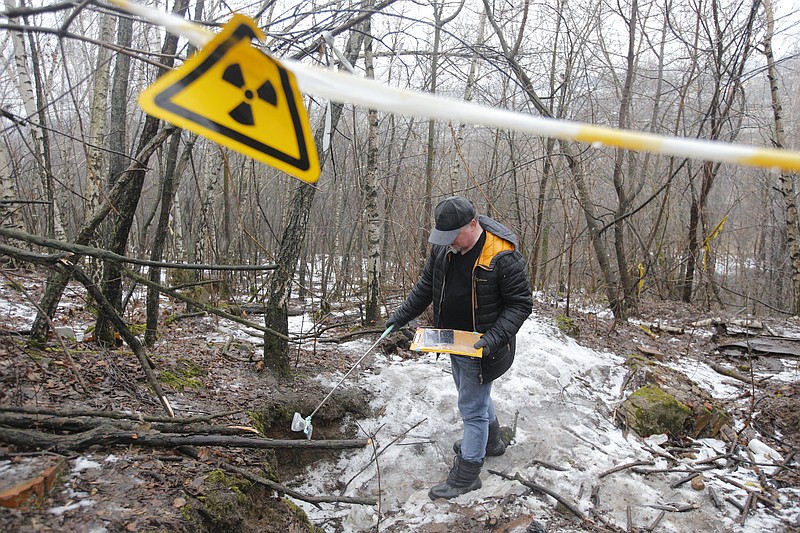MOSCOW (AP) - Activists in Moscow vowed Friday to persist with their campaign against plans to bulldoze a highway through a radioactive waste site, despite a police crackdown and mass detentions.
The campaign started two months ago as a small grassroots effort and made national headlines Thursday night after riot police stormed the protesters' make-shift command post near the site and detained more than 60 people.
On Friday, several dozen people gathered near the site once again. "We will continue to fight. Of course, we're not willing to give up," Larisa Bodrova, one of the activists, told the Associated Press before the meeting.
Awareness about environmental issues has been growing in Russia in recent years. In a poll released in December 2019 by the Levada independent pollster, 48 percent of Russians named environmental pollution as the number one threat of the 21st century, prioritizing it over terrorism.
Environmental activism has been on the rise too. In 2018-19, spontaneous environmental campaigns across the country - mostly against toxic landfills operating at capacity - accounted for the biggest non-political protests.
Bodrova and dozens of other activists live in residential blocks in southeast Moscow, where city authorities plan to build a multi-lane motorway. Part of it is supposed to go through a plot of land where at least 60,000 tons of nuclear waste are buried, according to Russia's public health watchdog Rospotrebnadzor.
Digging into this contaminated land is dangerous as it would stir up a huge amount of radioactive dust, Alexei Ozerov, a physicist supporting the activists, told the AP. "People will be inhaling it, and (the dust) will spread quite far - 10-15 kilometers (6.21-9.32 miles) (around the site)," Ozerov said.
Radiation levels on the surface of the soil in the area are already several times higher than normal, activists who regularly take measurements argue.
Construction work was supposed to start in early January, but the activists blocked the entrance to the contaminated area, not letting workers and trucks in. Since then, they have been camping out there 24/7, keeping warm in an old used minivan they all chipped in to buy.
"I don't have another home, I don't have a place I could move to," activist and local resident Katya Maksimova told the AP in February. "Neither do other residents, so we (continue to) keep the vigil."
In late January, Moscow officials acknowledged the problem and admitted the area had "minor traces" of contamination. They promised to start removing the contaminated earth in the spring, but the activists continued their 24/7 watch, demanding a through investigation into the levels of contamination first.
As the starting date for earth removal works loomed, the police turned up the pressure on the activists and tried to clear out the make-shift camp this week. Their first attempt Tuesday night to tow away the minivan and fence off the area was unsuccessful: The activists, supported by dozens of local residents, blocked the tow truck and refused to go away despite the presence of a riot squad. The resistance continued Wednesday, and on Thursday resulted in mass detentions.
By Friday morning, almost all of those detained were let go. The minivan was towed away, and the area where the activists used to gather was fenced off, but the group called for a gathering nonetheless.
"Yes, it is scary," Maksimova said, recalling clashes with the police Thursday. "But we're not prepared to throw in the towel."

